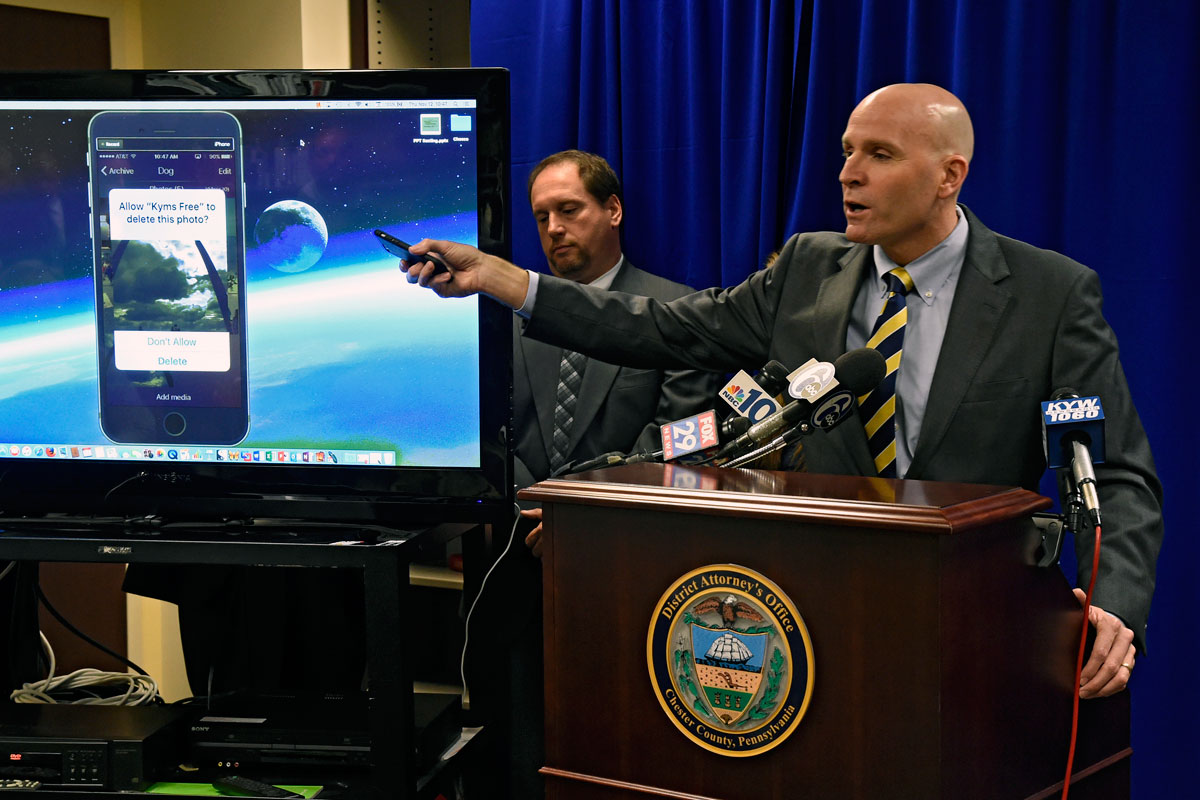New PA Law Strengthens Protection from Harrassment
After three boys harassed and distributed explicit photos of a 13-year-old classmate, her life as a freshman at Conestoga High School became “a living hell,” in the words of the Chester County district attorney.
But she was able this fall to take advantage of a new state law – one that placed her classmates under a court order barring the boys from any contact with her.
Following the lead of other states, Pennsylvania’s Protection of Victims of Sexual Violence or Intimidation law for the first time expands traditional court-ordered protection from its typical targets – such as ex-spouses and relatives – to acquaintances and strangers.
Since July 1, judges have granted more than 370 such orders under the new law, according to state police. At least 19 protected minors. More than half of all orders were due to sexual violence.
“This is a commonsense layer of protection,” said Tom Hogan, Chester County’s district attorney.
Hogan and Tredyffrin school officials have declined to identify the participants in the sexting case there or talk in detail about the incidents and its aftermath. But they said the girl and one of the boys had dated in middle school and broke up before they got to high school.
According to a report in the West Chester-based Daily Local News, one of the boys stalked the girl multiple times at her home and in school, including the girls’ bathroom. And before she was able to get the court protection order, her high school assigned an aide to follow her around school for her protection, since her harassers walked the same hallways.
In Bucks County, court officials said, judges have used the new law to protect at least two minors from alleged stalkers. One was a teenage girl being followed by a man who went to her gym.
The law prohibits assailants from having contact with the victim at his or her home, job, school, or wherever else a judge decides. Orders may include prohibiting indirect contact through third parties. Violations could lead to arrests, probation, or fines.
In New Jersey, the Sexual Assault Survivor Protection Act of 2015, allowing more victims of sexual assault to seek protective orders, became law Nov. 9. It takes effect in six months.
At least 28 states and the District of Columbia allow sexual-assault survivors to get civil protection orders against their abusers, according to an April report by the American Bar Association’s Commission on Domestic and Sexual Violence.
Advocates in Pennsylvania tried for more than a decade to expand protective orders to more sexual-assault victims. Supporters in other states faced similarly long fights.
“I think culturally we thought if it’s a sexual assault and one-time thing, you don’t need protection,” said Meg Garvin, executive director of the National Crime Victim Law Institute in Oregon. “This is filling a gap in the community that survivors have needed for a long time.”
As society learned more about sexual-assault offenders and saw that many offenders know their victims, people realized victims often have a good chance of seeing their abusers again.
Survivors of rape on college campuses have gotten protective orders under the law, said Joyce Lukima, chief operating officer for the Pennsylvania Coalition Against Rape.
“This really offers a tool for survivors to keep them safe,” Lukima said. “People are just becoming aware of this as an option for them. When they see there’s some action they can take, they’re probably more likely to reach out for help also.”
Advocates say they expect the numbers of protection orders to rise as more people learn about the law.
Roberta Hacker, executive director of the Philadelphia advocacy group Women in Transition, supports the new law, but she pointed out that a protective order is not a guarantee of safety and not a perfect fix.
Rape survivors, for example, would have to know their attackers and be willing to go to court to file for protection. Many victims are not willing to do that.
“It’s another tool,” she said. “It’s better than nothing.”
Advocacy groups have been teaching prosecutors, police officers, court personnel, advocates, and others about the protections offered under the new law.
A big challenge, they said, is to spread the word to the general public to reach those who do not use the justice system or victim centers.
610-313-8207@MichaelleBond

